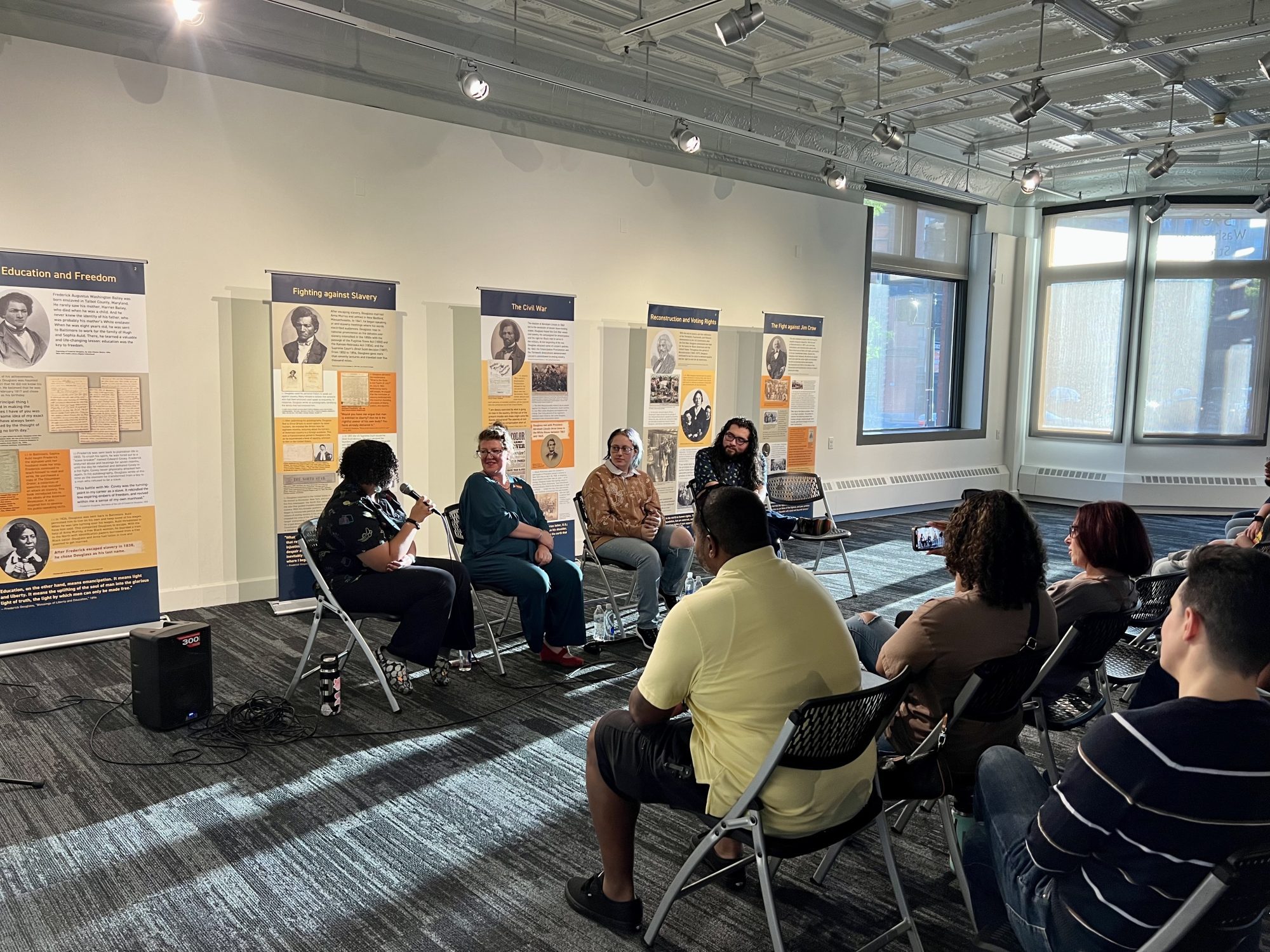LYNN — From women’s health to trans rights, bodily autonomy is being “violated” in the United States, School Committee member Tiffany Magnolia said at a panel hosted by United Lynn Pride at the Lynn Museum Monday evening.
“Whether it be sex ed or any other curriculum, it actually doesn’t matter at what age it’s taught, if we don’t have a concept of bodily autonomy as part of this type of education, then we don’t have the building block for gender and sexuality,” Magnolia, who is also a professor at North Shore Community College, said.
Bodily autonomy is a concept that means a person’s body is theirs to decide what to do with. When students understand what bodily autonomy is, it allows them to be able to identify preferred pronouns — words such as he, she, or they that indicate gender identity — and have those pronouns respected, Magnolia said.
Bodily autonomy and other topics related to gender-and-sexuality education were the focus of the panel. The other panelists were Colby Prentiss, a trans man who is pansexual, and Xenn Wilksey, who is bisexual. United Lynn Pride Executive Director Cristian Recinos moderated the discussion.
Wilksey said they struggled in their middle school years, being picked on for their sexuality. But as social media became more prevalent, they said gender and sexuality became topics that were discussed more.
“We still have a lot of hurdles to go through from bullying and all that stuff, but we’re doing pretty well, I think, and I feel a lot more accepted in spaces than I did in middle school,” Wilksey said.
As a trans person, Prentiss said bullying is something he still experiences in school.
“It is really hard, it’s a very big struggle for me,” Prentiss said.
This is why he said he believes gender-and-sexuality education should start in elementary school, but without going into as much depth as curriculum would in high school.
“Just to explain that ‘Hey, this is okay,’” Prentiss said. “Like, it’s okay to be gay, it’s okay to be straight. It’s okay to like whoever you want.”
Magnolia said that she is working to get Lynn Public Schools to adopt a sexual-education curriculum that has bodily autonomy at its core.
“It makes our conversations about gender and sexuality so much more neutral,” Magnolia said. “I think that’s where a lot of people get hung up, they think that it needs to be political or they think that it needs to be highly charged, but it doesn’t, it can be completely neutral.”
Deadnaming, calling somebody by their birth name when they no longer use it, is another topic the panel talked about. Both Wilksey and Colby discussed how this has been an issue in school.
According to neurobiological research, 6 is the average age when people can articulate that they are trans, Magnolia said.
“For this specific population, what’s really essential is that schools have policies in place to be able to use preferred names and preferred pronouns as early as kindergarten and first grade,” she said. “We also know from the research that trans kids are more likely to take their own life and to attempt suicide… and the supports in places like classrooms make the difference between trans kids living and not living.”

